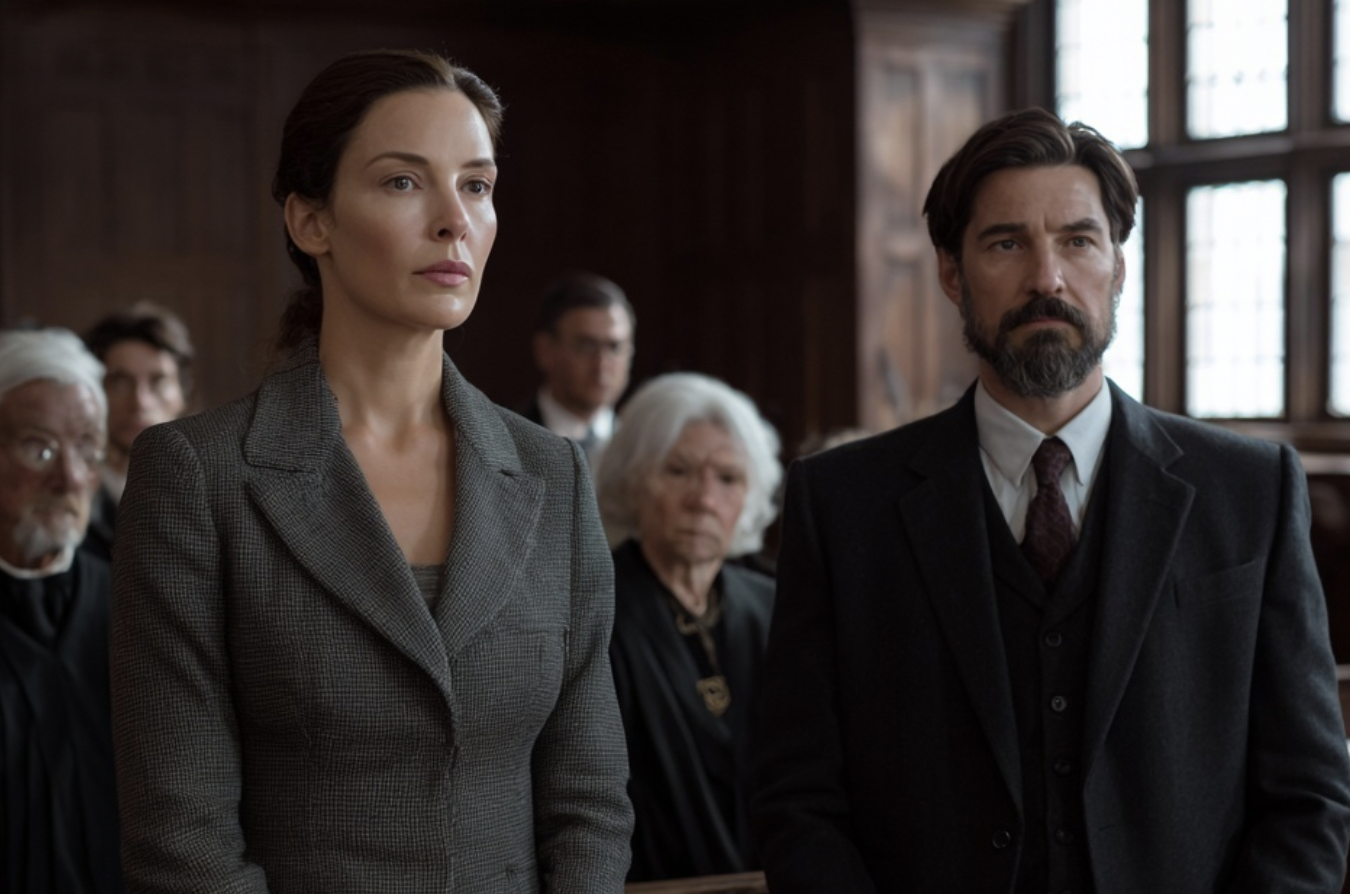You won’t get anything in court!” my ex-husband cackled. But when my attorney walked into the hall, silence fell—and he started to cry.
His laughter echoed down the empty courthouse corridor—cloying, humiliating. He stood surrounded by his “entourage”: an expensive lawyer with a crocodile-skin briefcase and his mother, who looked at me with forced sympathy thinly veiling blatant judgment.
“We just want you to leave Dima alone,” she drawled sweetly, a poisonous spark flickering in her eyes. “He’s suffered enough.”
I looked at Dmitry—his well-groomed face wearing a mask of sham virtue. The man who had spent years methodically destroying my life was now playing the victim. And everyone believed him.
My public defender—a young guy who looked at the floor more than at me—fidgeted with his papers, as if he’d already accepted defeat. After our first meeting he’d advised me to “settle at any cost.”
“We have statements from the neighbors,” Dmitry went on, mocking me. “Everyone heard you screaming. How you couldn’t control yourself.”
He was a master at leaving things out. For example, that I screamed when he locked me in a room. Or when I found yet another flirtatious chat on his phone. In his version I was just a hysteric. And he was the poor martyr who’d endured “a woman like that” for years.
I glanced around the waiting area. People were watching us—at him with understanding and pity, at me with condemnation. I wanted to sink through the cold marble floor. I was ready to do anything just to end the humiliation. But somewhere inside a small flame still smoldered, refusing to let me give up completely.
That same evening, after the first meeting with his lawyers, I called an old university friend who worked at a law firm. I didn’t ask for help—just needed to vent. She listened silently and then said, “I know someone. He’s not simple, but cases like this are his specialty. I’ll pass him your number.” I expected nothing.
“Look at yourself, Lena. You’re alone. Who’s going to believe you?” Dmitry hissed, leaning closer. His expensive cologne mixed with the smell of my fear. “You’ll lose everything—your home, your money, your reputation. You’ll have nothing left.”
And at that moment, the doors at the end of the corridor opened. Everyone turned.
A tall man in an impeccable dark-gray suit walked in. He didn’t look like a lawyer—more like a surgeon or an architect; there was a cold precision in his eyes. His quick, penetrating gaze swept over everyone present, as though scanning them through.
Dmitry frowned; his confidence showed its first crack.
The man walked straight to me, ignoring everyone else.
“Elena Andreevna? Kirill Valeryevich,” he introduced himself calmly. His voice was even and assured. “Your friend called me. I’ve already reviewed the case materials. We can begin.”
The smile slid off Dmitry’s face. He glanced at his smug attorney, then at the newcomer, and in his eyes I saw something I had never seen before—fear.
His laughter died. His mother clutched his arm in a panic. And when Kirill opened his briefcase and set a thick folder of documents in front of my stunned public defender, Dmitry sank onto the bench. For the first time in many years I saw tears on his face—tears of rage and helplessness.
The hearing was only a preliminary one, but the tension in the courtroom was so thick you could cut it with a knife.
Dmitry’s lawyer—slick and overconfident—started first. He spoke about my “emotional instability,” about my “attempts to manipulate his client.”
“Your Honor, the plaintiff’s side is trying to tarnish my client’s spotless name,” he declaimed, flourishing his hand. “This is a classic case of female vindictiveness after a breakup.”
My new counsel kept silent, jotting brief notes in his notebook. When his turn came, he stood. No grand words, no theatrics.
“Your Honor, we won’t deny my client’s emotionality,” he said evenly. Dmitry’s attorney smirked. “We’ll simply give those emotions context.”
Kirill laid a single sheet of paper before the judge.
“This is a statement from a bank account opened in the name of Dmitry Petrovich three days before he filed his petition.
“As you can see, a significant sum was transferred to that account from the company where he works—the very company whose financial troubles he lamented to my client while pressuring her to sell her inherited apartment.”
Dmitry looked as if he’d been jolted with electricity. His lawyer’s face darkened at once.
“This is irrelevant!” he shouted.
“On the contrary,” Kirill replied calmly. “It has direct bearing on systematic psychological and financial pressure. This isn’t revenge. It’s evidence.”
The judge studied the document thoughtfully. A recess was declared.
In the hallway Dmitry rushed up to me at once. The victim’s mask had returned to his face, but now it sat crooked.
“Lena, why are you doing this?” He tried to take my hand; I jerked away. “You know this is all a misunderstanding. We can settle everything peacefully.”
His voice slid back into that insinuating tone I’d heard a thousand times—the voice that made me doubt my own memories, believe that I was the one to blame.
“Let’s just talk. Without them. Remember how good we were together? Are you really going to ruin everything over some piece of paper?”
For a moment I almost gave in—the old habit of yielding to avoid a fight, the longing for the nightmare to end.
But Kirill appeared beside me. He didn’t even look at Dmitry. He addressed me.
“Elena Andreevna, you mentioned that your ex-husband often recorded your arguments on a voice recorder to use against you?”
I nodded, not understanding where he was going.
“Just clarifying,” he said calmly, then looked straight at Dmitry. “I hope you’re recording this ‘peaceful conversation’ too? For the record.”
Dmitry recoiled as if from a flame. His face twisted with rage. His whole act, everything…



